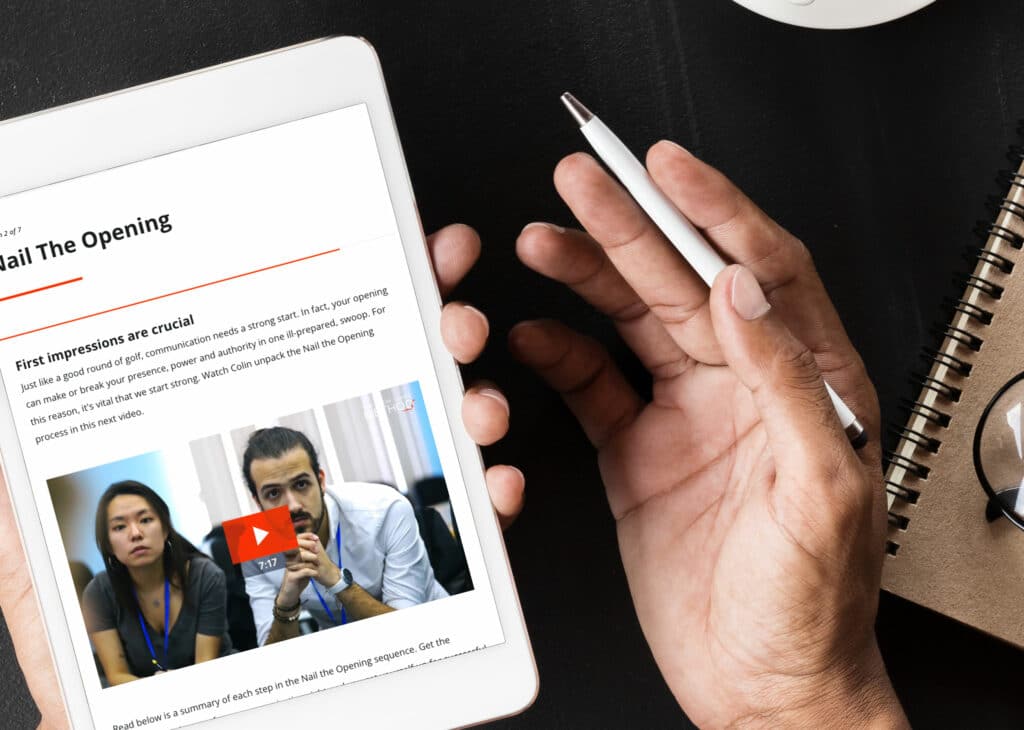For managers and team leaders, it’s important to work on building self-confidence as a speaker. You may often need to communicate dynamically with clients and colleagues to engage them in a project or get sign off with senior people. But if you lack confidence as a speaker, stumble over your words and use “ums” and “ahs”, the message you’re trying to impart can get lost.
A classic example of someone who overuses “ums” and “ahs” when speaking is Prime Minister Malcolm Turnbull. Listen to any soundtrack of him being interviewed, like the recent interview on radio 3AW, and you’ll hear that his speech is interspersed with lots of “ums” and “ahs”… so it is quite frustrating to listen to.
The occasional “um” or “ah” is normal, it’s natural, we all do it. But why do we do it?
For some people, it’s very occasional. For other people, it’s only when they get nervous or anxious and aren’t quite sure what to say. Then for other people, like Malcolm, it’s a common everyday thing. He has a habit of filling in his sentences with “ums” and “ahs” and he doesn’t even realise he’s doing it.
Why do we fill in space in our sentences with nonsense words?
You can find yourself using “ums” and “ahs” when you’re unprepared. You begin speaking and quickly realise you haven’t really thought through what you’re going to say. So you stumble about trying to find the point you want to make, and lots of “ums” and “ahs” pepper your speech.
Mostly “ums” and “ahs” are to give us thinking time. Words are racing faster than our thoughts can catch up, so we pause, and instead of silence, we use an “um” or an “ah” to fill in the gap. Two places they commonly occur are at the beginning of a statement and in between ideas.
If you’re trying to facilitate a meeting or get clients or colleagues engaged or involved in a project, it can be difficult to feel you’re achieving that when your words aren’t flowing naturally.
For their part, they need to have confidence in what you’re saying, they need to be confident that you’re confident in what you’re talking about.
But “ums” and “ahs” can undermine your credibility, your authority and your confidence.
What can you do to improve self-confidence when speaking?
Pause and take a breath
Instead of interjecting with “ums” and “ahs” on your pauses, take a deep breath and calm down. By calming down and allowing your brain to catch up, the right words should follow on the out breath.
Know who you’re speaking to
Be very clear on who’s going to be in the room when you’re communicating. What is it that you want them to feel, to think and to do as a result of your communication? Plan your first three to four sentences and your key messages, so there’s less need for you to fumble about trying to find the right words. You’ve thought it through, you’ve planned it out and you can now articulate and engage them with confidence.
Want more insights on how to improve your confidence when speaking? Download our free 4 Steps To Owning Your Confidence Cheat Sheet today.

The Colin James Method® Facilitators train corporate executives to improve their leadership skills with a proven methodology. Our highly trained Facilitators and Coaches are recognised for their experience in their fields and have worked with many individuals and organisations around the world to master the art of communication.










